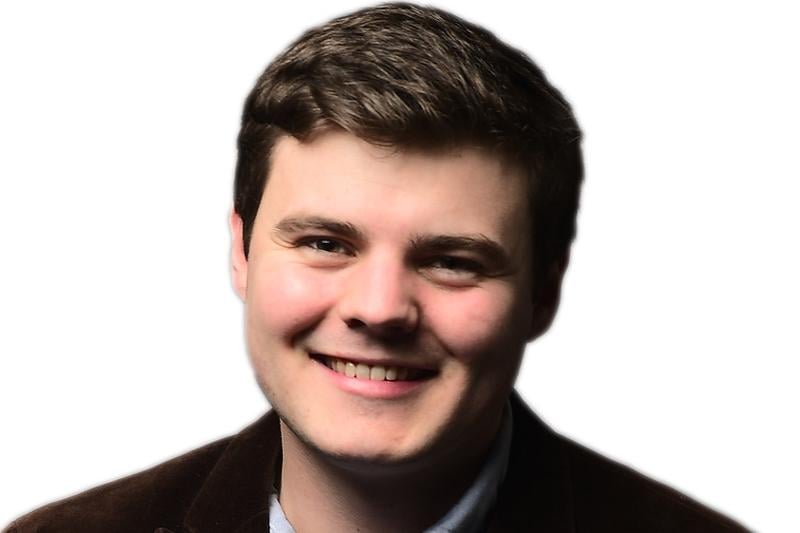Kirkland: What role should student voices play in the political conversation?
May 11, 2015
Last week, I wrote on the need for a serious nationwide debate about inequality in America in wake of the protests in Baltimore. My main point was that although everyone seems to have identified economic, racial and political inequalities as serious problems facing the country, very few have ventured any real, hard-hitting solutions.
The column was pretty standard fare in terms of the columns I’ve been writing since I joined the paper in January: obviously and unabashedly liberal, with an admittedly insufficient sprinkling of bipartisan concessions. Given the topic and the argument I made, I was not surprised to find a few critical emails in my inbox the day my article was printed. As a partisan college student writing for a campus newspaper, I’d be naive to expect everyone to agree with my article, let alone read it.
One particular email caught my eye, however. In six organized paragraphs, the sender unloaded an incendiary takedown of my article that was at once offensive, racist and condescending. The racism, punctuated by disgusting use of the term “them,” invalidated every aspect of his argument and dispelled any respect I might have had for him as an intellectual sparring partner.
But buried beneath his ignorance and offensiveness was one argument that I’ve reflected a lot on this past week. Essentially, his point boiled down to this: You’re a spoiled college kid who’s never worked a real job a day in your life and you should stop jabbering away on issues you know nothing about.
Both parts of his argument brought on reflection. In the course of condescension and ignorance, he’d raised a lot of interesting questions relevant to college students everywhere, and to this third-year Northwestern student in particular:
What is the role of a university or college student in the public discourse? Do we deserve a voice, despite our inexperience and idealism? If so, what weight and what caveats should that voice carry? Is there a value to inexperienced idealism in itself, or am I really just “mouthing off” as he so colorfully explained?
I hate that I am in a sense validating his email by posing these questions here, but I thought they would make for an interesting discussion and, hopefully, yield a moment of reflection.
I don’t have an answer to these questions. On one hand, I definitely agree that my three years of political science courses and my two introductory economics courses don’t give me the intellectual authority to preach politics or to dictate national macroeconomic policy. Reading Foreign Affairs doesn’t grant authority to my solutions for global geopolitical crises. Do I really know better than a Nobel Prize-winning economist how to solve inequality in America? Of course not. Can I predict better than the mainstream political punditry who will win the presidency in 2016? No. Does my privilege as a college student cloud my assessment of the intelligence of my ideas? Probably.
But that’s not the full story. College students deserve a voice, despite inexperience and idealism. That voice has an important role to play in public discourse. My individual columns don’t deserve much weight, but the collective voices of my generation do. We will be the ones to inherit the mess of the present and take on the task of rebuilding it.
College students are young but engaged. We haven’t, for the most part, developed the jadedness of experience that some in older generations have, or the disillusionment of others wrought by decades of political and institutional failures.
We spend most of our days thinking, engaging with new ideas and fresh content, learning new perspectives and listening to new narratives. Our youth and inexperience means we can be sponges for new information and new experiences. We can change our minds when confronted with new evidence, a pretty refreshing concept in this political climate.
Are there limitations to the weight our voices should carry? In some cases, definitely. To state the obvious: My columns don’t have the influence of David Brooks or Ezra Klein, and with good reason. They are brilliant, respected professionals, and I’m pretty much just winging it.
In other cases, though, student voices should carry as much or more weight than any others. This is especially true of marginalized voices, which mine is not among. Who better to speak on education issues than a first generation college student? Who better to argue for immigration reform than a DREAMer pursuing their passions in higher education?
To say college students don’t have a voice worth listening to discredits a whole generation of thinkers and leaders who will one day take on the mantle of responsibility. And it discredits millions of voices that often have a unique and important perspective to bring to the table.
I don’t know the answers to the questions I posed above, and it’s possible my thinking will change as I continue to reflect on them. In that spirit, as college students do across the world, I encourage you to reflect on them yourself.
William Kirkland is a Weinberg junior. He can be reached at [email protected]. If you would like to respond publicly to this column, send a Letter to the Editor to [email protected].


